Cell Reproduction -> chronology
Chronology
Chronology is the science of arranging events in their order of occurrence in time. It is an essential concept in various fields, including history, geology, archaeology, and biology. Understanding chronology helps us to comprehend the sequence of events and their relationship to one another.
Key Concepts to Understand in Chronology:
- Relative Dating: This method involves determining the order of events without determining their specific age. It is often used in fields such as geology and archaeology. Techniques include stratigraphy, which studies the layering of rocks, and seriation, which analyzes the stylistic changes in artifacts over time.
- Absolute Dating: Absolute dating provides specific dates or age ranges for events. Methods include radiometric dating, dendrochronology (tree-ring dating), and carbon-14 dating. These techniques are crucial in establishing the timeline of events in history and the natural world.
- Geological Time Scale: This scale divides the Earth's history into eons, eras, periods, epochs, and ages. It provides a framework for understanding the long-term chronology of the planet, including the evolution of life and major geological events.
- Historical Chronology: In history, chronology involves organizing and dating past events. It helps in understanding the progression of civilizations, the rise and fall of empires, and the development of cultures and societies.
Study Guide for Understanding Chronology:
- Define the terms "relative dating" and "absolute dating" and provide examples of each.
- Explain the significance of the geological time scale and its divisions.
- Discuss the importance of chronology in historical research and provide examples of how it is utilized in understanding the past.
- Compare and contrast the methods of relative and absolute dating, highlighting their differences and similarities.
- Describe how chronology is applied in fields such as biology, geology, and archaeology, and explain its relevance in each discipline.
Understanding chronology is crucial for comprehending the sequence of events in various disciplines. By studying and applying the concepts of relative and absolute dating, as well as the geological time scale, we can gain a deeper understanding of the history of the Earth and human civilization.
.◂Science Worksheets and Study Guides Seventh Grade. Cell Reproduction
Study Guide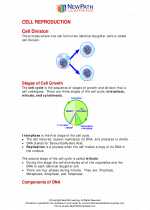 Cell Reproduction
Cell Reproduction  Activity Lesson
Activity Lesson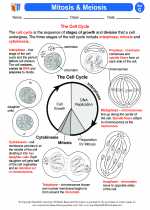 Mitosis & Meiosis
Mitosis & Meiosis  Worksheet/Answer key
Worksheet/Answer key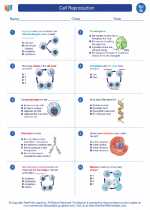 Cell Reproduction
Cell Reproduction  Worksheet/Answer key
Worksheet/Answer key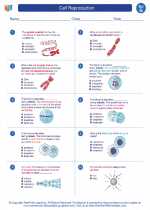 Cell Reproduction
Cell Reproduction  Worksheet/Answer key
Worksheet/Answer key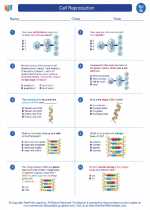 Cell Reproduction
Cell Reproduction  Vocabulary/Answer key
Vocabulary/Answer key Cell Reproduction
Cell Reproduction  Vocabulary/Answer key
Vocabulary/Answer key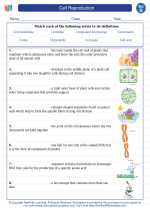 Cell Reproduction
Cell Reproduction  Vocabulary/Answer key
Vocabulary/Answer key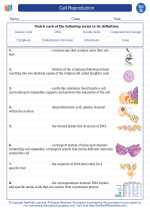 Cell Reproduction
Cell Reproduction  Vocabulary/Answer key
Vocabulary/Answer key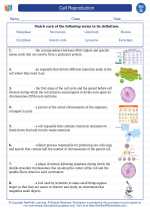 Cell Reproduction
Cell Reproduction  Vocabulary/Answer key
Vocabulary/Answer key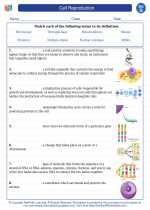 Cell Reproduction
Cell Reproduction  Vocabulary/Answer key
Vocabulary/Answer key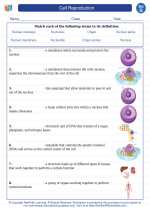 Cell Reproduction
Cell Reproduction  Vocabulary/Answer key
Vocabulary/Answer key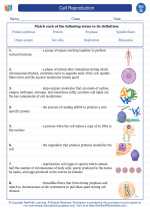 Cell Reproduction
Cell Reproduction  Vocabulary/Answer key
Vocabulary/Answer key Cell Reproduction
Cell Reproduction 

 Activity Lesson
Activity Lesson
 Worksheet/Answer key
Worksheet/Answer key
 Worksheet/Answer key
Worksheet/Answer key
 Worksheet/Answer key
Worksheet/Answer key
 Vocabulary/Answer key
Vocabulary/Answer key
 Vocabulary/Answer key
Vocabulary/Answer key
 Vocabulary/Answer key
Vocabulary/Answer key
 Vocabulary/Answer key
Vocabulary/Answer key
 Vocabulary/Answer key
Vocabulary/Answer key
 Vocabulary/Answer key
Vocabulary/Answer key
 Vocabulary/Answer key
Vocabulary/Answer key
 Vocabulary/Answer key
Vocabulary/Answer key

The resources above cover the following skills:
LIFE SCIENCE
From Molecules to Organisms: Structures and Processes
Gather and synthesize information to explain how prokaryotic and eukaryotic cells differ in structure and function, including the methods of asexual and sexual reproduction.